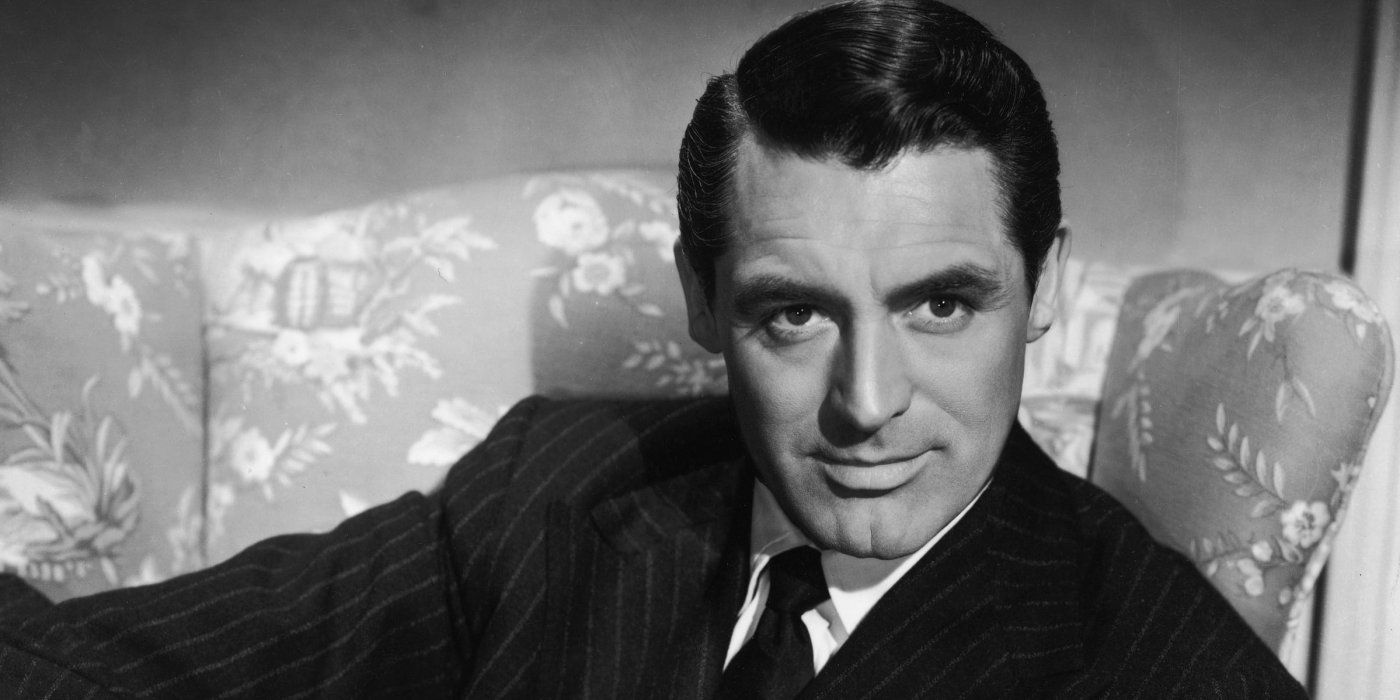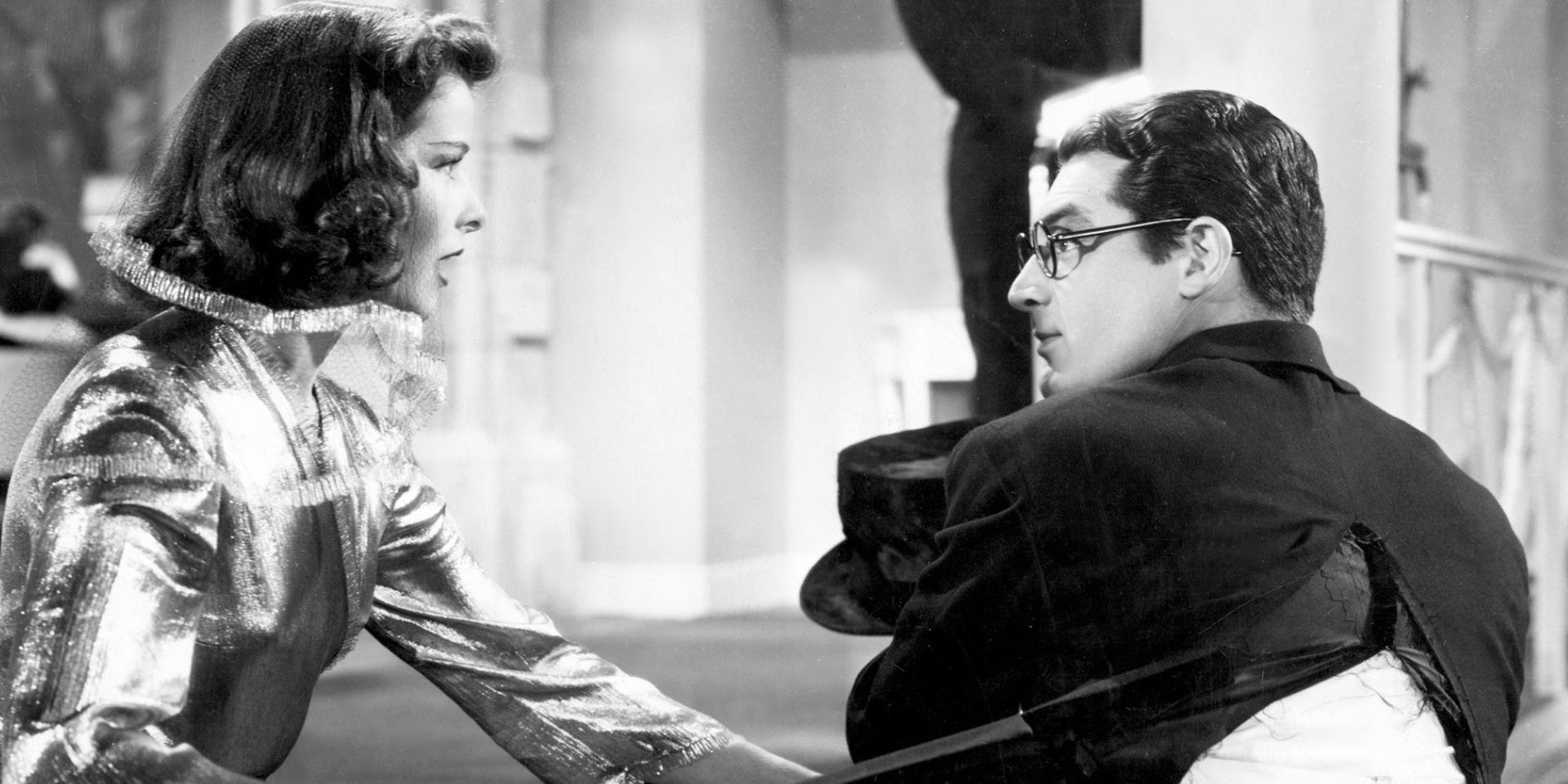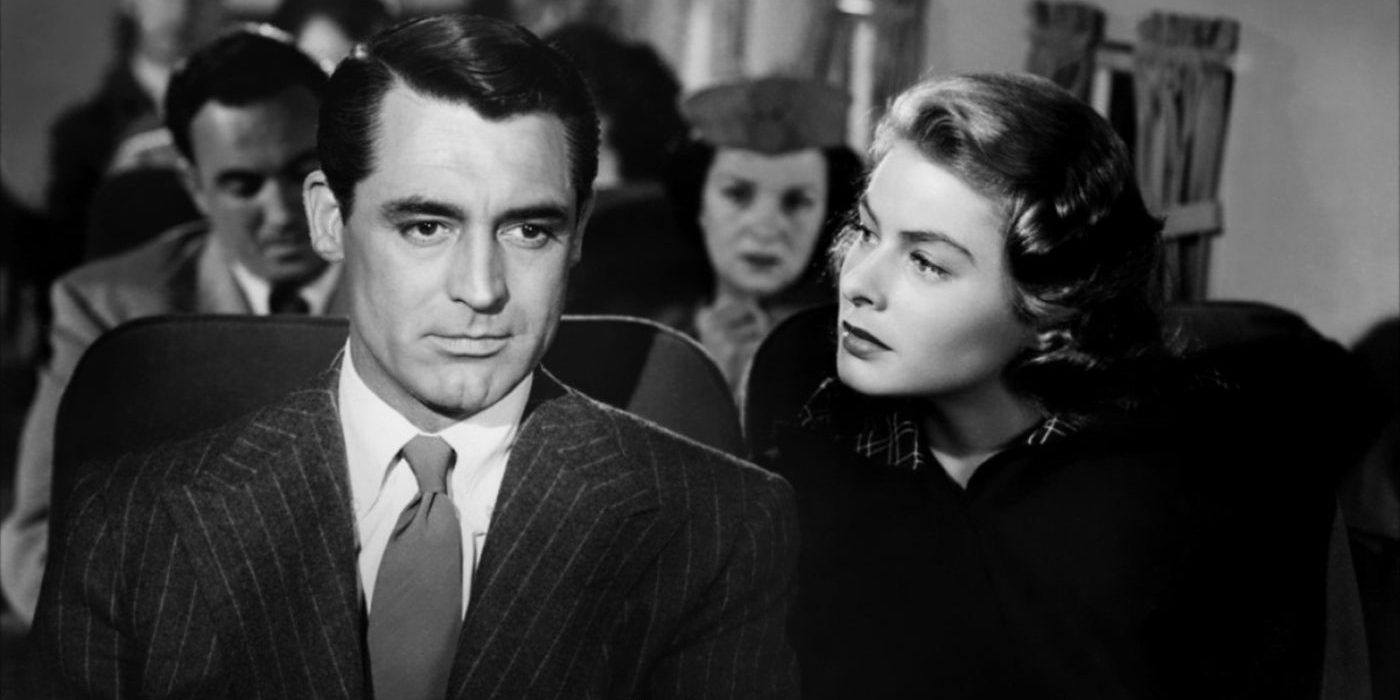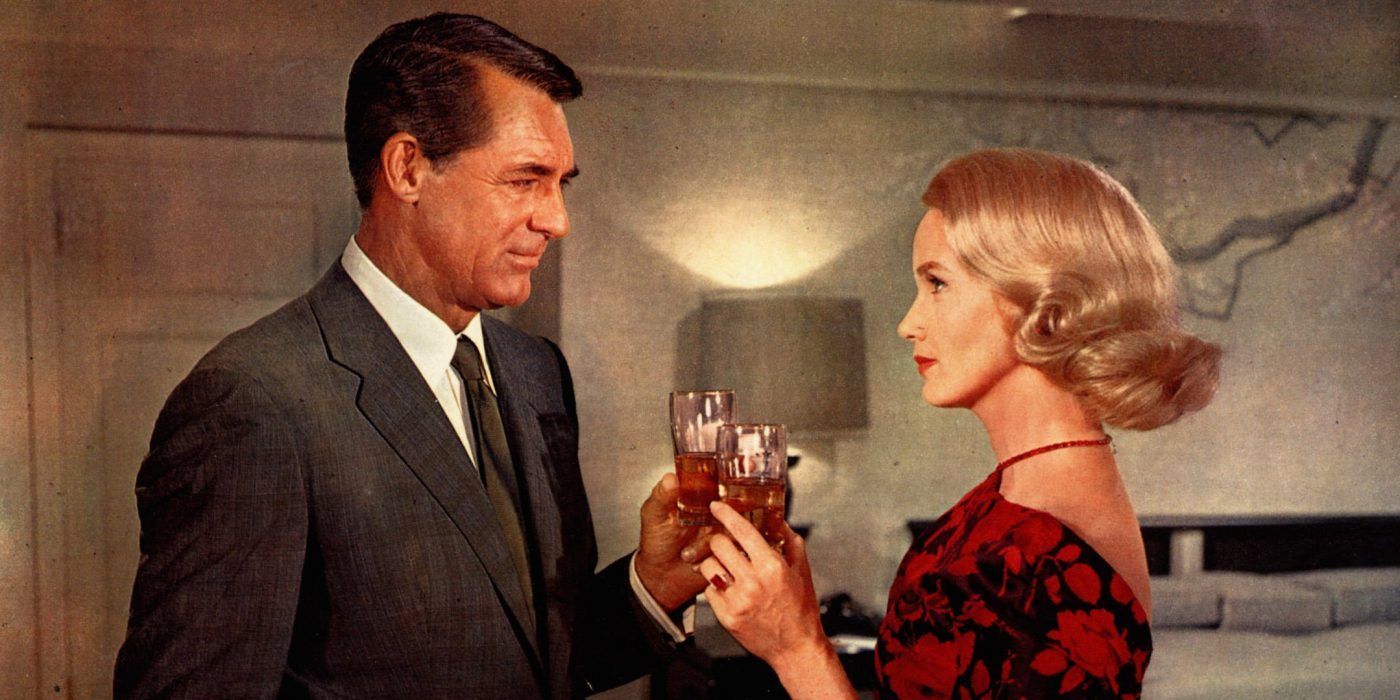Cary Grant, one of Hollywood's most important leading men in the 1940s and 1950s, has a reputation as one of the best actors of his time. Grant, who made movies for MGM, RKO, Paramount, Warner Bros. and more, made several successful hits in a long career that spanned over 30 years. Grant was active in Hollywood between his first film in 1932 and his retirement in 1966.
During the Golden Age of Hollywood, the biggest actors in the entertainment industry were people like Errol Flynn, John Wayne, Humphrey Bogart, James Stewart, Bette Davis, and Clark Gable. All of these were household names during that time period — and arguably, still are. Known for his roles in The Adventures of Robin Hood and Captain Blood, Flynn was regarded as Hollywood’s best swashbuckling hero. Casablanca star Humphrey Bogart and western hero John Wayne were renowned for crafting “tough guy” images with their roles, while James Stewart was known for playing the likable and relatable protagonist in movies like It’s a Wonderful Life. As for Bette Davis, the highest-paid actress in the 1940s, she was the Queen of Hollywood — second perhaps only to Katharine Hepburn. All of these Hollywood legends starred in iconic films, allowing them to live on in the memories of fans for generations.
Another actor who fits into that conversation is Cary Grant, who earned a place among the other Hollywood legends. In fact, the American actor’s reputation and critically-acclaimed performances have made him the “King” to Bette Davis’ “Queen.” Here’s what makes Cary Grant – born as Archibald Leach – the King of Hollywood in the Golden Age.
Cary Grant's Early Screwball Comedies
Cary Grant’s career began in 1932 when he starred in a comedy titled This Is The Night with Hollywood starlet Lila Damita. For the next few years, Grant’s appearance and dashing, suave persona caused him to be cast in movies like Blonde Venus in which he played romantic leads and playboy characters. He received a number of parts in the mid-1930s but wasn’t considered a star until his breakout performance in Topper, which started a trend for Grant. In this screwball comedy, Grant and his co-star Constance Bennett play a rich couple who die and become ghosts. As spirits, they unintentionally cause a great deal of trouble for Roland Young’s title character.
Topper led to Grant getting similar roles, one of which being the part of a palaeontologist named Dr. David Huxley in Bringing Up Baby, which marked the second time he was paired with Katherine Hepburn. In Bringing Up Baby, Cary Grant’s Dr. Huxley goes through a series of hilarious disasters when he meets a quirky, eccentric heiress who causes him to lose an invaluable dinosaur bone. While trying to recover the bone which has been buried by a dog, he struggles to distance himself from Hepburn’s character, but to no avail. Even today, Bringing Up Baby is considered one of the greatest screwball comedies of all-time.
Bringing Up Baby and Topper were all it took for studios to make Cary Grant their go-to leading man for romantic screwball comedies. In the late 1930s, he starred in several of them, including His Girl Friday, My Favorite Wife, and The Awful Truth.
Cary Grant's Best Hollywood Movies
Cary Grant’s career evolved in the early 1940s when Hollywood started moving away from the screwball comedies. While this aspect of his films were lost, he remained a romantic comedy star for quite some time; one of his best such pictures is The Philadelphia Story, in which he is involved in a love triangle with characters played by James Stewart and Katherine Hepburn. Also worth mentioning are the memorable movies Mr. Blandings Builds His Dream House and The Bachelor and the Bobby-Soxer.
Though Cary Grant built his career on romances and comedies, the movies mentioned above barely scratches the surface of what makes Grant so important to Hollywood’s history. Another highlight of his career is the 1957 romance, An Affair to Remember, a movie about two people who keep getting drawn together despite the obstacles that keep them apart. Also, his association with legendary director Alfred Hitchcock created some of his most memorable performances. Though some of these occurred when he was already an aging star in his 50s, his partnership with Hitchcock started with Suspicion, which was a big break from type for Grant. In the 1941 movie, the female lead – played by Joan Fontaine – is plagued by suspicions that her gambling-addicted husband (Grant) is going to murder her for her life insurance.
Thanks to Suspicion, Grant became one of Hitchcock’s favorite actors, as he was brought back for Notorious, North by Northwest, and To Catch a Thief. For each film, he played the male lead. All three are considered among the best for both Cary Grant and Alfred Hitchcock. Notorious was an espionage movie that pushed the boundaries of what could be shown on screen with its steamy romance scenes between Cary Grant and Ingrid Bergman. North by Northwest was an action film in which Grant played an innocent man mistaken for a spy. His performance in the movie received praise across the board. The same can be said for his role in To Catch a Thief, where he acted alongside Grace Kelly as a retired jewel thief who is forced to put his skills to use again in order to apprehend an impostor.
Cary Grant’s Hollywood Legacy, Explained
One way to measure Cary Grant’s legacy as a Hollywood star is to look at the scope of his career in the industry. So many stars are only able to remain relevant for a few years or just a decade, while some end up becoming supporting characters when they reach their later years. That wasn’t the case at all for Cary Grant, who was a leading man from his late 20s all the way up until his early 60s. Furthermore, once Grant reached the top in the late 1930s, he stayed there for a long time, due in some part to his tremendous range. He could be relied on to lead a film whether it was a romance, a comedy, or an action movie — and his age didn’t seem to matter. Even when he was in his 50s, he was still getting top-billing roles in movies that called for him to play romantic leads opposite actresses that were significantly younger than him.
Another actor who has been called the King of Hollywood is Clark Gable, best known for starring in Gone with the Wind. Though Gable and others have turned in some solid performances, Cary Grant has an acting resume that’s tough to beat by anyone, despite the fact that he never won an Oscar. The American Film Institute officially ranked the top 100 movies in every major genre, and it’s a testament to Grant’s legacy just how many of his movies were included. An Affair to Remember, Bringing Up Baby, North by Northwest, The Philadelphia Story, His Girl Friday, Topper, The Awful Truth, Notorious, and To Catch a Thief are all considered to be among the most important movies ever made. The common denominator that helped make them such good films is of course Cary Grant, who remains to this one day one of the greatest actors ever to grace the big screen.




